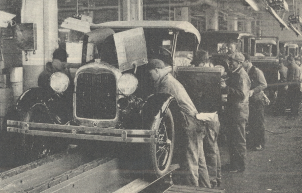This post is an elaboration of a presentation that I gave at INTERNalize on August 16.
TL,DR: Health and adaptability are the highest priorities I’d be suggesting to myself if I were 20 years old at present.
Background
INTERNalize was inspired by - although a little less ambitious than - INTERNapalooza, so the suggested topic was “Things I wish I knew when I was 20”. Advising a room of ~20-year-olds so broadly seems rather presumptuous: most of my mentoring and advising is along the lines of taking the time to understand what someone is working on and what their major problems are, and from this providing context from my own experience, suggesting broad approaches and/or introducing appropriate people. Consequently, this brief was rather unfamiliar territory. Nonetheless, I gave it some thought.
One of the first things that occurred to me was that it would have been rather useful to know that being a nerd would turn out to be a very good thing. Indeed, it wasn’t even obvious at the time that it would stop being a bad thing, let alone that we’d become the focus of economic activity for decades. As this is now rather obvious, and as there were several other things that later occurred to me that would have been useful to know but are now common knowledge, I changed the topic to “Things I’d Want to Know if I were 20 Today”.
The Future is Becoming Less Predictable
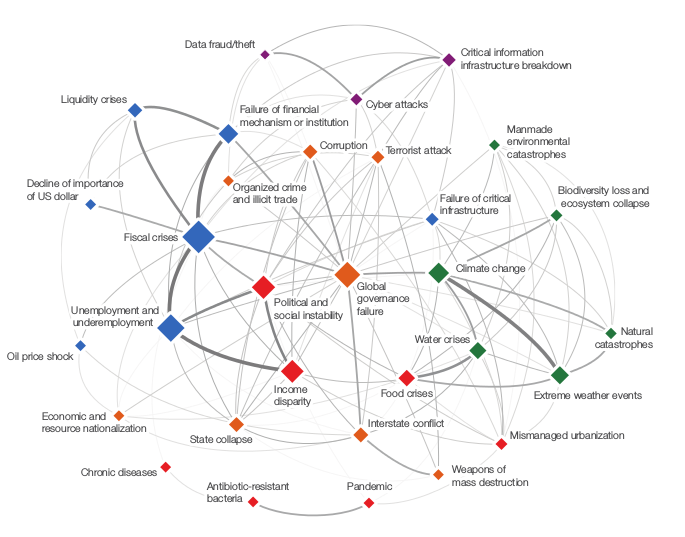
(source)
Predicting the future is always difficult. Worse, it’s more difficult now than it’s been at almost any previous time. The above is a visual summary of the interconnections and relative impact of global risks identified by the World Economic Forum earlier this year. The specifics are interesting, but its complexity is even more so. A comparable summary at almost any previous time in human history would have been quite a bit simpler, if materially incorrect on occasions such as early 1914 and early 1939. That complexity makes it far more difficult to make accurate predictions than would otherwise be the case. Some authors have started to use long-standing military ideas about volatility, uncertainty, complexity and ambiguity (“VUCA”) in particularly difficult situations to describe what’s increasing becoming the norm in civilian life.
The practical impact of this observation is that using lessons from the past to guide choices in the present and in the future is becoming more and more difficult. People who are 20 today are going to be more reliant upon their ability to find their own path than their elders are.
Some people talk about an imminent Technological Singularity which may render the future not merely unpredictable ahead of time, but unfathomable as it unfolds. I suspect that this is somewhat overstated but, in any event, suggest that this is merely an additional area of uncertainty, rather than the primary one.
I should point out that I’m drawing attention to some pretty hair-raising problems not to suggest that the future will be terribly unpleasant - I don’t believe that it will be - but merely to communicate the increasing degree of unpredictability that the future contains.
20-Year-Old Singaporeans are Likely to Live for Quite a Long Time
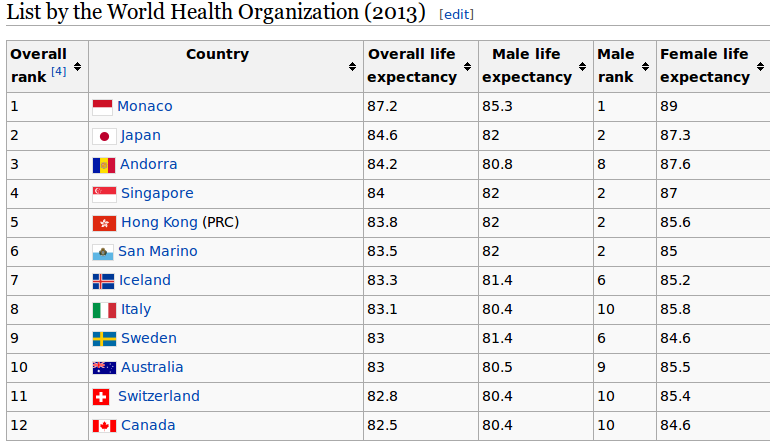
(source)
Not only are average life expectancies increasing throughout Asia, not only are Singaporeans having life expectancies rise particularly quickly generation on generation: Singaporeans have almost the longest life expectancy in the world. If you are a 20 year old Singaporean today, you are looking at a 60-70 year planning horizon. Note also that these numbers are for whole of population, presumably life expectancies for 20-year-old Singaporeans are actually even higher than this.
Not only is the future even more unpredictable than it was in previous generations, 20-year-old Singaporeans are likely to live through more of it than previous generations did and will therefore be even more reliant upon their ability to find their own path than their elders are.
I do wonder what’s in the water in Monaco.
How Much Less Predictable?
This is difficult to quantify and there are many ways to describe it, here’s an analogy with cars.
So how much change has there been over the last 60 years in cars? Here are examples of cars considered stylish in 1954 and 2014. Although a great deal has changed (more power, more speed, less pollution, far more safety, …) no-one would have any trouble working out which belonged to which year, and in fact someone from either era would understand what the model from the other era was and could probably even drive it.
But what if we take into account the fact that 60 years is a low bound, and the rate of change is much higher? For the sake of argument, let’s double the period.
Now we have a problem. We certainly recognise the older “car” (the modern car being a “horseless carriage”), but most of us would have serious trouble driving it. Worse, the Czar probably wouldn’t recognise the modern vehicle as a method of ground transport at all. This is potentially the sort of gap that a 20-year-old Singaporean today is going to have to navigate during their lifetime.
The Prius and the Model S already point to a shift away from hydrocarbon-powered transport, although this doesn’t require a great leap of imagination. Driverless cars, however, will change the shapes of vehicles, who owns them and how people seek to use them in ways that we very likely can’t imagine yet. As recently as a decade ago these vehicles were science fiction; today they are already on the roads and already safer than human-driven vehicles. Already, regulators are having to deal with decisions about whether to permit driverless cars onto roads and under what rules. It is conceivable that within a couple of decades, regulators in some areas will have to start dealing with questions of whether to continue to permit human beings to drive cars on roads because of the price in human lives of doing so. This is just what’s already apparent about the next couple of decades. Ground transport 60 years from now is quite likely unimaginable to us at present.
Kahlil Gibran’s prophet put this problem poetically when advising parents on the raising of their children:
Your children are not your children.
They are the sons and daughters of Life's longing for itself.
They come through you but not from you,
And though they are with you yet they belong not to you.
You may give them your love but not your thoughts,
For they have their own thoughts.
You may house their bodies but not their souls,
For their souls dwell in the house of tomorrow, which you cannot visit, not even in your dreams.
You may strive to be like them, but seek not to make them like you.
For life goes not backward nor tarries with yesterday.
You are the bows from which your children as living arrows are sent forth.
It’s not just 2074 ground transport that we cannot visit, not even in our dreams, it’s almost everything that humans do.
Things to Look After
Given the higher-than-usual unpredictability of the future and the fact that 20-year-old Singaporeans will see more of it than almost anybody else currently alive, it might reasonably be objected that no-one is qualified to advise. This assumes that the only way to advise is to predict the future with some confidence and then propose how best to act to benefit from that. I’d suggest that this is not the only available approach, and that there are a couple of things in particular that can be focussed upon even when the future is particularly difficult to predict.
- Your Health
- Your Adaptability
Health
If you’re going to live longer than almost anyone before you and almost anyone around you, then you have a particularly strong interest in your health; a long life in an unusually complicated and unpredictable environment will suck very badly if you’re in poor health throughout most of it. Further, health-care costs generally and aged-health-care costs in particular have been rising substantially year on year for almost a century; it’s possible that this will suddenly reverse during the next several decades, but this would not be a good bet. Reducing the need to depend upon extremely expensive health care is almost certainly wise.
The good news is that most of keeping yourself healthy is pretty easy:
- Eat properly.
- Exercise frequently.
- Sleep enough.
Unfortunately the two loudest sources of information about diet and nutrition (food companies seeking to profit by selling more sugar/salt/fat and women’s magazines seeking to profit by promoting poor self-esteem and quick fixes) are terribly poor sources of information. If you can’t find good undergraduate texts on the subject, start at the Wikipedia page and work from there. This is worth more than a casual read, you’re going to be living in your body for a long time and it’s composed entirely of what you feed it. It’s worth learning how to do this well.
Get 30 minutes of exercise a day, or an hour every second day. The rest is detail. It’s worth studying to sort out how best to make use of that time, but just exercising regularly will make a huge difference by itself. Yes fellow nerds whose recreation time is rarely spent more than 1.8m from a power outlet, I’m looking at you. The earlier you develop this habit - and in particular the earlier that you find forms of exercise that you enjoy - the better you’ll do.
Sleep is generally even simpler. So long as you’re not depending upon an alarm clock to get you out of bed every day, you’re probably fine.
(There are various other details that are worth addressing, but I did not intend this to be exhaustive. Yes, see a dentist annually. Yes, see a doctor if you have unfamiliar symptoms or flu-like symptoms. Etc.)
Adaptability
Most 20-year-olds in affluent countries have just spent a little over half of their lives wrecking their adaptability. This is a serious problem.
Skipping a lot of detail: modern schooling was invented in Prussia in the 18th century (yes: “modern”) to convert self-sufficient peasant farmers - who were very finely attuned to the unpredictabilities of turning dirt, water and sunlight into food, but not overly interested in timetables or paperwork - into predictable conformant cogs for deployment into military and bureaucratic machines.
At the time, and even well into the 19th century, it was a pretty good bet so long as you succeeded in getting into a good position. An example might be getting a position in the East India Company and then founding Singapore.
By the late 19th century, the enormous demand for unskilled and semi-skilled labour meant that Prussian-style schooling was a good bet for almost everyone, because employment as a cog in someone else’s machine was available for almost everyone. Ford took this one step further when he realised that paying his workers well above market rates would make them even more obedient and therefore more predictable and therefore his factories more productive and profitable. Skipping a lot of detail again, labour organisations spent most of the 20th century pushing variants of Ford’s pattern into every place that they could. This was a great idea while industrial giants were on the rise, but the degree of unpredictability described above puts large organisations at a significant disadvantage when compared to smaller, more adaptable ones. Large corporations aren’t going away, but the unconditionally great opportunity that they once represented is fading rapidly. Much of the opportunity of the next few decades will go to people who are operating in small organisations, or small autonomous groups within large organisations. Operating in this environment favours adaptability over compliance and predictability.
A consequence of the above is that after almost 3 centuries of macro-economic forces pushing human beings in the direction of being cogs, those same irresistible forces are now pushing humans in the direction of being more …human. Earlier in this post I suggested that I don’t expect the future to be terribly unpleasant; this is a large part of the reason for that belief.
An important problem is that we’ve not yet found a 21st century “replacement” for Prussian-style schooling although, as with cars, early indications of change are starting to appear. For those who have just completed Prussian-style schooling however, some remedial action is going to be required.
Regaining Adaptability
One of the best ways to [re-]develop adaptability is to put yourself into a fast changing environment in which you’ll not only be stretched in multiple ways, even more importantly you’ll be stretched in ways that you can’t predict. What better way to prepare for a decades-long career in an unpredictable environment? I had the good fortune to spend most of my 20s in small, fast growing businesses. These were somewhat comparable to what we now see as early-stage startups. So far as I can tell there is very little downside to doing so, and a great deal of upside.
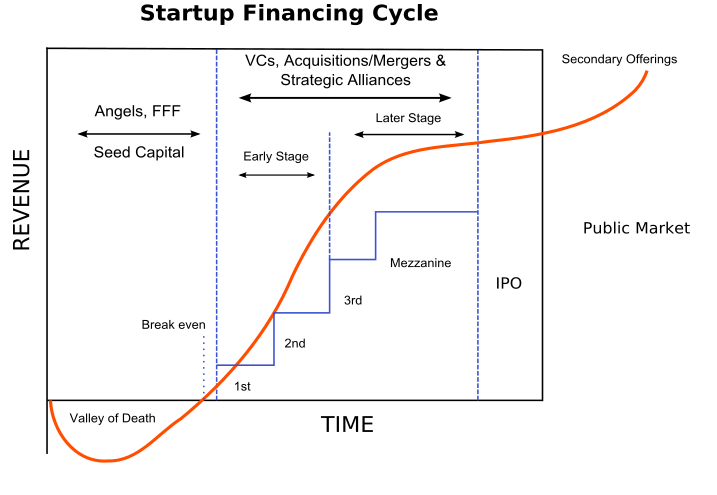
To be clear, I do mean early stage startups. Later stage startups are essentially large organisations that happen not to have gone public or been acquired yet, with all of the organisational inflexibility and pigeon-holing of employees that this entails.
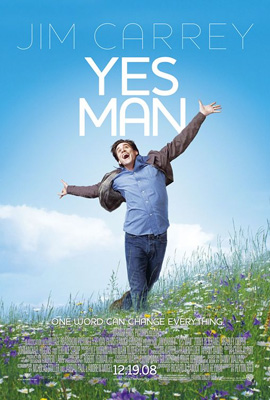
Another useful tactic is to frequently say “Yes!” to new ideas and opportunities. It is probably unwise to do so quite as thoroughly as Carl did, but it is almost certainly a better idea than avoiding new or unexpected things.
This applies to your own ideas too:
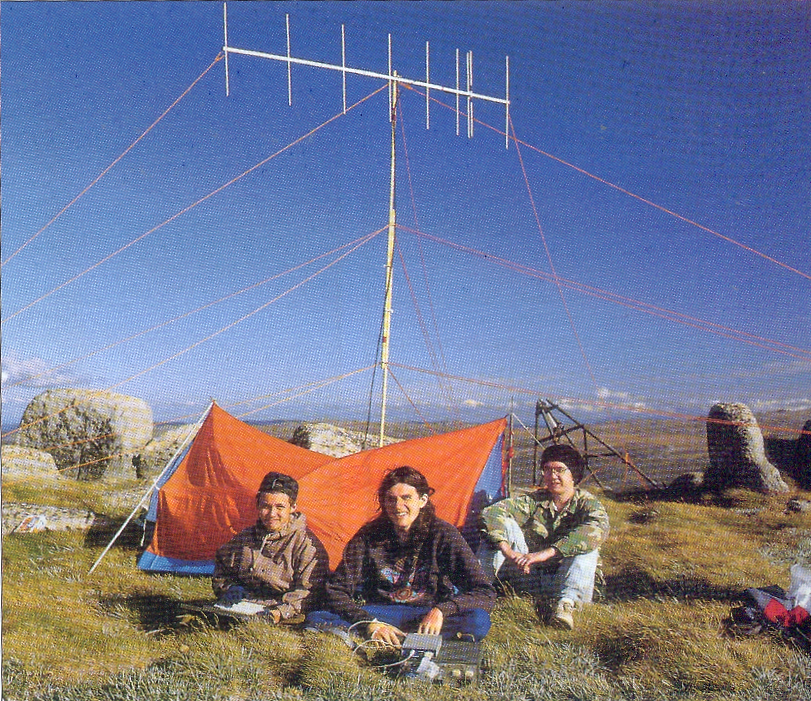
Oh yes, I once had hair well past my shoulders!
This is me with some slightly crazy friends on top of Mt Twynam - Australia’s third-highest mountain - with a notebook, radio-modem, transceiver, tent, large battery (not visible), antenna, cable, mast and guy ropes attempting to reach the Internet via a digipeater on Mt Ginini and a computer on a campus in Canberra (map). This project could quite reasonably be described as hare-brained (and indeed, failed because of damage to a cable; undeterred I tried again the following year on the aptly-named Mt Paralyser and failed again because the equipment in Canberra happened to go offline for most of that weekend) but its purpose wasn’t any practical end, it was to do a difficult thing because the challenge was fascinating and because I had to learn a great deal very quickly to make it happen.
I also learned a salutary and unexpected lesson about taking seriously the risk that mountains pose; running several km down a mountain-side with heavy packs on our backs and me holding the antenna above my head, in order to beat night-fall (and having to cover the final ~1km in darkness) is not something that I intend to repeat.
Much of what I learned trying this I would not likely have learned any other way.
Slightly less hare-brained is my current project to map the haze in Singapore. Once again, I’ve taken on a project mostly because it seemed interesting. Once again, the project has taken me places that I could not have anticipated. (I’ll have to detail this in another post some time.)
Taking on things that you ordinarily wouldn’t is a great way to stretch yourself in ways that you ordinarily wouldn’t and is a useful way of developing and sustaining adaptability.
My Tertiary Education
Although most 20-year-old Singaporeans are in the midst of and will complete undergraduate tertiary study, it’s worth bearing in mind that the now-traditional (since Prussia…) approach of packing in as much consecutive education as possible as early in life as possible isn’t the only approach and, for some people (including myself, although I didn’t realise it at the time), isn’t even a good approach.
Here is a chronology of what I was doing at what age:
- 17 Finished High School, 88th %ile (the NSW HSC is loosely comparable to completing 5 A levels)
- 18 Commenced B.Eng. (Electrical)
- 19 Failing
- 20 Dropped out
- … (worked as a programmer)
- 25 Commenced B.Sc. (Computing), full time study while working full time
- 26 Full time study, occasional contract work
- 27 Completed a year early, with 1st Class Honours and minimal debt
I was an extremely undisciplined student in high school. I was able to get through my HSC with minimal work, however that approach was not adequate at university. By the time I went back at age 25, I was able to manage myself and others well enough that I was working full time during the first year of full time study and was excelling. I don’t recommend that others plan to do this, I’m sharing it to make two points:
- there are other viable approaches than consecutive study as early in life as possible, and
- that this is in fact a bad approach for some people.
I’d suggest thinking carefully about study plans. Bear in mind that full time study as an adult is a substantial investment. Like any other investment, it should be made with careful consideration of what it is that you’re giving up and what you’re seeking to gain.
4 Things I’d be Suggesting to Myself if I were 20 Today
I’ll finish on concrete examples of “Things I’d Want to Know if I were 20 Today”:
-
Stretch yourself in every way possible. In general, this is best achieved by putting yourself in the situation of doing things that you weren’t able to predict, examples as above.
-
Solve other people’s problems, relentlessly. In addition to providing a supply of problems to work on that you couldn’t have predicted, and providing opportunities to be of service to others - an important value for many people - this also puts you in a front row seat for becoming aware of commercial opportunities as they arise. It would be crazy to do this specifically in anticipation of profit, but it’s a useful side-effect that may make it possible to do a lot more.
-
Do something that you love and get exceptionally good at it. Mediocre is no longer worthwhile (the enormous demand for unskilled and semi-skilled labour is gone and unlikely to return). This is also where “following your passion” may actually achieve something worthwhile; loving it makes lots of practice possible, which makes becoming exceptionally good at it possible. There is an implicit requirement here that you choose something(s) that are also potentially valuable to others; if you’ve just spent a little over a decade getting exceptionally good at nothing other than passing exams then it might be time to find something else to practice.
-
Don’t stress about reliable income. I was very slow to work this out and missed worthwhile opportunities because of it. This is particularly true if you don’t have kids and you’re not paying rent or a mortgage. When (if) you take on the money pit that is child-rearing then it will be pretty obvious that a reliable income is worthwhile, but until then you’ll gain more from chasing difficult, uncertain opportunities than from setting out to be a cog.
The presentation finished on that fourth item because it is one of the things that I had most trouble learning so I wanted to leave people with it. During Q&A I realised that I’d missed another very important item, applicable to everyone:
Learn to program
With the possible exception of retreats to monasteries etc., there is essentially nothing that human beings do that isn’t being eaten by software. People who fail to learn to program, and more importantly fail to develop the computational thinking that this requires, are putting themselves in a situation comparable to people a century ago who failed to learn to read. If you never learn to think this way then people who do will beat you to almost every interesting opportunity during the next few decades.
After the presentation someone was talking to me about his business and I made this point, his response was that his CTO took care of all of that. This is a mistake. A startup’s CTO deals with a range of stuff, but there is no longer some tech-free zone in which the “biz guy” can ply his trade. I recently came across a particularly strong example of this right here in Singapore:
- Put yourself in the position of someone running an online business selling some sort of physical goods.
- In order to maximise profits, your primary constraint is how quickly you can turn your stock over (assuming that you put almost all of your available capital into buying your stock: at a first approximation, on a margin of x% a 2-week average turn means an annual profit of 26 * x% (of your available capital), while a 3-week average turn means only ~17 * x%).
- That said, speed costs. If your sales are driven by AdWords sales then you’ll be making trade-offs between bidding higher to get more clicks so you can sell faster and bidding lower to keep your margin higher. This is yield management, there’s some considerable commercial skill in making this work.
- A programmer looking at the problem this way may immediately conclude that it is obvious that (a) the bidding should be managed by software and (b) that software should take the order stream from the ERP as input in order to optimise the yield curve.
- At least one e-Commerce organisation in Singapore is already doing this.
- If you were competing with them without this approach, they’d be eating you alive.
It’s not necessary, desirable, nor even possible, for everyone to develop the skills to become a professional programmer, any more than everyone should develop sufficient skills to be a professional journalist. It is nonetheless desirable for everyone to learn to read and write and, similarly, for everyone to learn computational thinking; this is generally best done by learning to program.
Unless you’re already a monk and intend for that to be your sole occupation for the rest of your life, learn to program.









